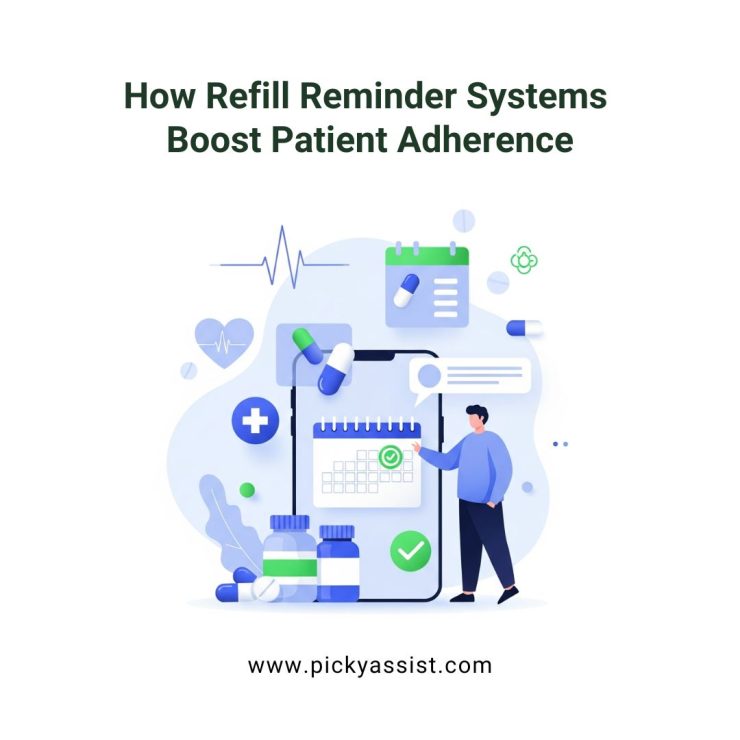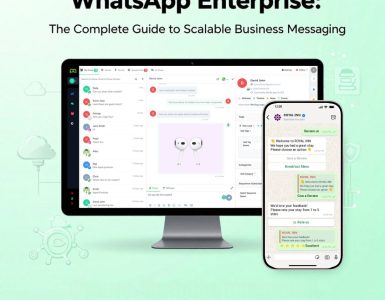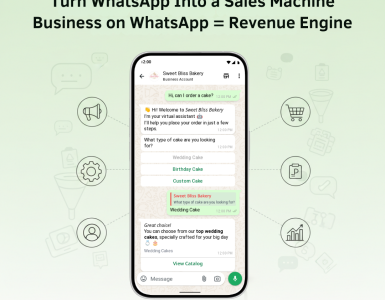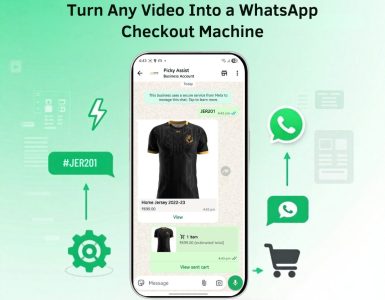Chronic diseases, lifestyle conditions and long-term therapies have become the new norm across India and globally. When patients take daily medication for heart disease, diabetes, dermatology, genetics or other conditions, there is one persistent challenge: keeping them on track. Missed medication refills don’t just reduce treatment efficacy, they increase risk of relapse, complications and switch to competitors. Especially, when there are 2,800+ pharmacies in a city). In this context, a medication refill reminder system becomes a strategic asset for patient retention, brand loyalty and business growth.
In this article, we will walk you through what a medication refill reminder is, how to build one, the role of AI chatbot, its impact, the best channels and practices, and finally explore how Picky Assist makes this simple, automated and powerful.
What is a Medication Refill Reminder?
A medication refill reminder refers to an automated notification or message sent to a patient when their medication supply is running low, or a prescription is due for renewal, a proactive nudge that says: “You are due to refill your prescription / pick up your next batch of medication.” It differs slightly from a “take-your-pill” reminder, though the two can overlap.
By alerting the patient before they completely run out, a refill reminder prevents gaps in therapy, reduces “drop-off” events, and helps the service provider (pharmacy, clinic or health-system) maintain contact with that patient.
Use of Automated Chatbots in Sending Refill Reminders
AI becomes unavoidable when it comes to medication refill reminder systems. Here’s how:
- Chatbots & Conversational AI: AI chatbots integrated via WhatsApp (or other channels) can recognise the date of purchase, days’ supply, patient history, and proactively send “Your medication [X] needs refill” messages. They can also handle responses, e.g., accept a “REFILL” reply and trigger the pharmacy to act.
Thus, AI doesn’t replace human care, but automates the repetitive part, freeing up pharmacy/clinic staff to focus on value-added tasks (counselling, upselling services, patient relationship).
How a Medication Refill Reminder System Works?
Building a medication refill reminder system involves a number of technical, operational and strategic steps:
- Patient Data Capture & Tracking
- Capture patient name, phone/WhatsApp number, medication details (name, last fill date, days’ supply), purchase or dispense date.
- Track shelf-life, expiry or next refill due date, for daily, weekly or monthly medications.
- Capture patient name, phone/WhatsApp number, medication details (name, last fill date, days’ supply), purchase or dispense date.
- Trigger Logic & Scheduling
- Set up logic to compute “refill due → remind” (for example: 3 days before expected run-out).
- Set reminder schedule (e.g., first alert, second alert after X days, follow-up if still not refilled).
- Set up logic to compute “refill due → remind” (for example: 3 days before expected run-out).
- Message Flow & Content
- Craft personalized messages: e.g. “Hi [Name], your [Medication-Name] is due for refill on [Date]. Please visit us or reply ‘REFILL’.”
- Include educational content: “Continuing your therapy on time helps control [Condition].”
- Use a follow-up offer: “Still need your refill? We offer home delivery or quick pickup.”
- Use multisession: Alert → Info → Follow-up if no action.
- Craft personalized messages: e.g. “Hi [Name], your [Medication-Name] is due for refill on [Date]. Please visit us or reply ‘REFILL’.”
- Integration & Delivery Channel
- Integrate with pharmacy/clinic database or EHR to fetch last dispense date.
- Use an automation platform that sends via WhatsApp at scheduled times.
- Use a broadcaster/automation engine to handle thousands of patients with minimal manual work.
- Integrate with pharmacy/clinic database or EHR to fetch last dispense date.
- AI Enhancements & Optimization
- Use AI to predict which patients are at risk of non-refill (based on past behaviour) and send targeted reminders.
- Recognize shelf-life from date of purchase, flag soon-to-expire meds, and send alerts accordingly.
- Use AI to predict which patients are at risk of non-refill (based on past behaviour) and send targeted reminders.
- Monitoring & Feedback Loop
- Track which messages were opened, which patients refilled after reminder, which didn’t.
- Adjust timing, message content, channel accordingly to maximize response.
- Track which messages were opened, which patients refilled after reminder, which didn’t.
Impact of Prescription Refill Reminders
The introduction of systematic medication refill reminders has measurable benefits:
- In one study on cardiovascular meds, patients who received an automated call reminder refilled more (30.3 % vs 24.9 %) and took less time to refill (29 days vs 36 days) than controls.
- Another large-scale programme found automated reminders improved blood pressure/cholesterol medication adherence among overdue patients.
- Automated reminder interventions have shown data-driven improvements in adherence, and even small percentage point gains can deliver large outcome-benefits when multiplied across populations.
- Improved refill adherence means fewer gaps in medication, less risk of complications, fewer drop-offs, which in turn supports patient retention for the pharmacy/clinic offering the service.
For a pharmacy or clinic, this translates into:
- More frequent visits or interactions (refill pickup, counselling, upsell).
- Stronger brand-loyalty (“they remind me so I keep coming here, rather than switching to a competitor”).
- Reduced churn of patients to competitor pharmacies (crucial when there may be 2,800+ pharmacies in a city).
- Increased opportunity for additional services (OTC advice, health checks, medication therapy management).
Benefits of Sending Automated Medication Refill Reminders
Here are the key benefits from the perspective of the provider (pharmacy/clinic) and patient:
For Providers
- Higher Patient Retention: Regular proactive contact keeps the patient connected to your brand instead of branch hopping.
- Operational Efficiency: Once the reminder system is set up, very little manual effort is needed, the system runs automatically.
- Revenue Uplift: Each refill-visit is an opportunity for additional services, cross-selling, or accuracy checks.
- Competitive Differentiation: Offering a digital reminder/engagement service distinguishes you in a crowded pharmacy market.
- Data Insight & Engagement: You build the habit of reaching out to patients (so when new services launch you have an engaged base).
For Patients
- Convenience: Rather than forgetting or running out of medication, they receive a timely alert.
- Better Health Outcomes: Fewer lapses mean better control of chronic conditions.
- Personalised Service: When you send the reminder via WhatsApp or personalised chat, patients feel the pharmacy cares.
- Reduced Anxiety: Patients who worry about “running out” can rely on the reminder system.
Channels for Sending Prescription Refill Reminders
There are several channels available and selecting the right one or combination is the key for customer retention.
- WhatsApp: High open rates, rich media, interactive buttons and excellent for personalization. Ideal for reaching patients where they already engage. It’s the best method as WhatsApp is the most used platform for communication both in India and around the globe with a confirmed opening rate.
- In-App Notifications / Push Alerts: If your pharmacy/clinic has a mobile app, push notifications are useful for engaging users.
- Email: Less immediate than other channels but still useful for supplementary educational content or follow-ups. It’s not a reliable method as the email opening ratio is comparatively very less.
Best practice: Use a multi-channel approach of reminders via WhatsApp and automated systems because one channel alone may miss parts of your patient base.
Best Practices for Implementing Refill Reminders
Ensuring successful implementation involves attention to infrastructure, process and user experience.
- Clean and synced data: Ensure your patient database is accurate including their name, last fill dates and contact information.
- Automated scheduling engine: Use a platform that can handle scheduling, triggers, multi-channel logic.
- Integration with pharmacy system/EHR: If possible, integrate with your dispensing system so refill due date is auto-computed rather than manual.
- Test your flows: Pilot with a small patient set, test message wording, channel effectiveness, timing.
- Monitor metrics: Response rate, refill rate after reminder, SMS/WhatsApp open rate, channel effectiveness.
- Optimize over time: Based on data, tweak timing, wording, channel, frequency.
- Compliance and privacy: Comply with messaging rules (e.g., WhatsApp Business API policies), patient consent (especially for WhatsApp), data security.
- Staff training: Ensure your pharmacy/clinic staff understand the reminder system, how to act when a patient replies “REFILL”.
- Marketing & differentiation: Promote this service to patients as a value add “We remind you when it’s time to refill so you don’t run out”. This helps retention and positioning.
“Smart-Engage with Picky Assist”: How Picky Assist Helps?
Here’s where the platform steps in, making it possible for pharmacies/clinics to deploy full-scale refill reminder systems with minimal effort. Now you can focus on service, counseling and growth, while your patients benefit from timely care.
- Automated WhatsApp Broadcaster: Picky Assist enables you to schedule bulk reminders via WhatsApp trigger-based messages that go out to all patients whose refill due date is approaching.
- AI Chatbot & Conversational Flow: The AI chatbot can engage patients on WhatsApp, recognise responses such as “REFILL”, “DELAY”, “DELIVERY”, and act accordingly to confirm a refill, pick-up, schedule home-delivery or send educational content.
- Shelf-life / Date-of-Purchase Recognition: The system can compute from the date of last purchase the approximate run-out or expiry date of medication, and trigger reminders accordingly, no more manual tracking.
- Multi-Channel Logic with Fallbacks: While WhatsApp is primary, Picky Assist supports fallback via SMS or other channels if no response, enabling coverage.
- Analytics Dashboard: Track which reminders were opened/replied to, which led to refills, response lag, channel performance, enabling you to optimise.
- Minimal Operational Work: The pharmacy or clinic simply uploads patient contact + purchase/dispense info. The rest is automated. No need for complex IT or huge investment.
- Patient Retention Focus: By proactively staying in touch, you build the habit of the patient choosing your pharmacy/clinic for future refills, helping you combat competition in high-density markets.
Conclusion
Chronic conditions are prevalent today and patients have many pharmacies to switch. By proactively reminding patients when their prescription needs updating or refilling, you close the gap that leads to therapy lapses, drop-offs and lost patients. You also build stronger relationships, increase loyalty and create opportunities for additional services.
The key is automation, integration, smart triggers and the right delivery channels, ideally WhatsApp, supported by personalised and timely reminders. With AI-enabled systems (predicting who will not refill, tailoring messages, automating chat interactions is made easy, reducing additional staff.
Platforms like Picky Assist offer a compelling plug-and-play solution. Here recognising shelf-life, computing refill due dates, sending WhatsApp reminders and managing follow-ups is seamlessly possible.
If you want your pharmacy to become the “go-to” choice for repeat refills, implementing a medication refill reminder system today is a smart business decision.
FAQs on Medication Refill Reminder
1. What is the purpose of a medication refill reminder?
A medication refill reminder helps pharmacies and clinics ensure patients never miss their prescribed doses. It reminds patients to reorder their medicines on time, improving adherence, boosting satisfaction, and maintaining consistent sales for the pharmacy.
2. How often should clinics send medication refill reminder?
Clinics and pharmacies should ideally send reminders 3–5 days before the refill due date and a follow-up message if the patient hasn’t responded. The timing can be customized based on prescription duration and patient needs.
3. Can these reminders be sent automatically via WhatsApp?
Yes. With Picky Assist, pharmacies can send automated WhatsApp medication refill reminder without manual effort. The system syncs patient data and sends personalized messages at the right time, directly to WhatsApp, where patients are most active.
4. How does automation benefit small clinics?
Automation helps small clinics and pharmacies save time, reduce workload, and eliminate missed follow-ups. By automating refill reminders, staff can focus on patient care instead of repetitive messaging tasks, improving efficiency and consistency.
5. Can AI improve the accuracy of these reminders?
Absolutely. AI-powered tools like Picky Assist analyze patient behavior and refill patterns to send reminders at optimal times. This ensures high accuracy, minimizes human errors, and creates a seamless experience for both patients and pharmacies.







Add comment